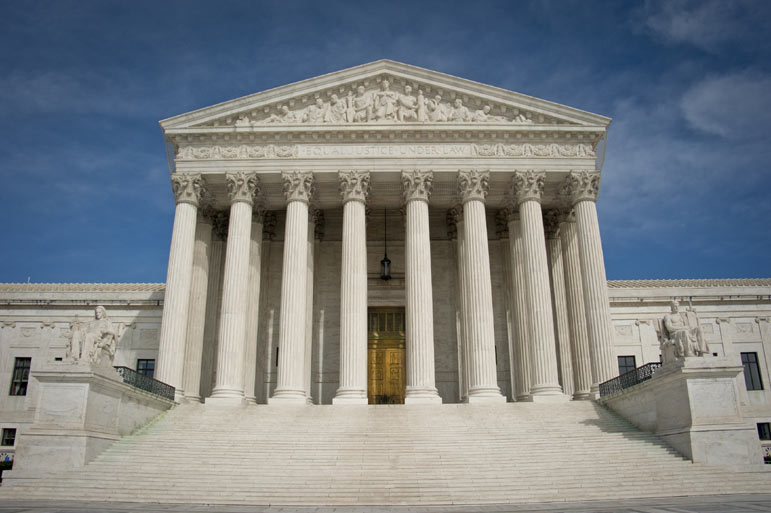
The right has long been of this view, and the left is suddenly and opportunistically partway there.
In an essay capturing progressives’ newfound skepticism, Ezra Klein of Vox wrote that the Supreme Court "has always been undemocratic” and is now becoming even "more dangerous.”
This represents a welcome turnabout from cheering the high court's de facto legislating, most recently in the Obergefell case that mandated gay marriage nationally with little or no constitutional warrant. Indeed, the left is about a half-century late to the insight that the court isn’t a democratically elected legislature.
In the 1960s, the court became markedly more assertive, delivering a raft of activist decisions, especially on matters of criminal justice and sexual morality.
In their excellent recent book on the history of the Constitution, Michael Stokes Paulsen and Luke Paulsen write of this era: "The dominance, supremacy, and near-exclusivity of judicial and especially Supreme Court interpretations of the Constitution and the free-wheeling interpretive liberty that accompanied such essentially unrestrained judicial power were new, distinctive, and profoundly important phenomena in the history of the Constitution."
Progressives cheered all the while.
Needless to say, the court was never meant to be an unelected superlegislature, and it has taken on such a highly charged role in our politics, in part, because it arrogated this power to itself.
The court's legitimacy comes from faithfully interpreting laws passed by the legislature and adhering to the Constitution that is the foundational governing document of the country, adopted and amended by "We the People.” Anything else is a usurpation.
Progressives are, perversely, taking a more hostile view of the court precisely when it may get a reliable majority of justices devoted to this vision of it.
Klein alleges that the court is becoming affirmatively "anti-democratic," by which he means it isn't striking down democratically adopted voter rules and gerrymandered districts.
Klein may oppose the Ohio law that purges nonvoters from the rolls if they to fail to respond to a government notice after a period of years, but there is a remedy readily at hand — changing the law in Ohio, which continues to have regularly scheduled elections.
As for gerrymandering, the court punted on making a big pronouncement on it this term. But gerrymandering is not a partisan phenomenon.
Both parties avail themselves of it when they win elections at the state level. Last month, the court slapped down a Republican challenge to a congressional district drawn by Democrats in Maryland.
The Supreme Court isn't, in a hallmark of its activism over the past several decades, imposing its own preferred policy on maintaining voter rolls or writing congressional districts. It's letting elected bodies decide and fight it out.
If the left were serious about its new worries about an undemocratic court, it would welcome the prospect of overturning Roe v. Wade and returning the issue of abortion directly to the voters.
Instead, the fear of such a decision is one of its counts in its indictment of the court. "There is no majority of voters out there," John Cassidy of The New Yorker complains, "clamoring for a ban on abortion."
But this is irrelevant to the dubious constitutional status of Roe, and polls consistently show people want more restrictions on abortion than are permitted under Roe, which has effectively mandated abortion on demand.
Indeed, the belief that voters in some states will ban abortion and voters in lots of others will regulate more stringently if Roe is overturned is the single biggest motivating factor in opposition to Trump Supreme Court nominee Brett Kavanaugh. In other words, on this key issue, the worry is that the court will allow too much democracy.
Of course, the court will, and should, act as a check on the popular will at times. But in doing so, it must limit itself to enforcing the law and the Constitution and not insisting on its preference.
But this would represent an enormous loss for progressives.
First, a court that no longer envisions itself as an instrument of social change wouldn't hand the left totalist victories unachievable in the political realm. Two, the animating vision behind the Constitution — written by men with a strong suspicion of centralized power — runs counter to the logic of progressive government.
So the left will bang on about the undemocratic court without changing its core belief that it is rightfully the vehicle for mandating its favored policies.


 Contact The Editor
Contact The Editor
 Articles By This Author
Articles By This Author